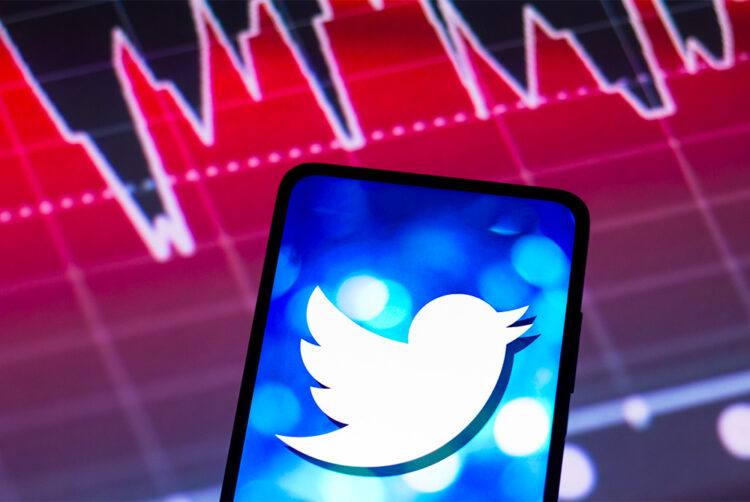‘Not my cup of tea’: Musk’s toxic brand still looms over Twitter despite CEO change

Advertisers have been fleeing Twitter.
According to a New York Times report earlier this month, the social media company’s ad sales have fallen 59% year-on-year.
Last month, there appeared to be a brief sign of hope for Twitter that advertisers may consider returning to the platform after months of wariness. After Elon Musk named NBCUniversal executive Linda Yaccarino its new CEO, WPP issued updated guidance that the platform was no longer “high risk”.
But a growing chorus of former employees are beginning to speak out against Musk’s ownership of the platform.
In a LinkedIn post, former Twitter UK senior director of planning David Wilding confirmed he resigned from his role at the social media company last November due to new owner and then-CEO, Elon Musk.
“I didn’t see a vision, a strategy or a leadership style I could get behind and was in a position where I could decide it wasn’t for me,” wrote Wilding. “At the risk of understatement he’s not really my cup of tea.”
In his post, Wilding calls out Musk’s inconsistency of objective. Whereas Musk, before and soon after purchasing the company, committed to being a “free speech absolutist” and told Ron Baron that people should be able to choose whatever type of Twitter experience they want (e.g., comparing Twitter to different radio stations by letting users decide to avoid “heavy metal thrash” and choose “easy listening smooth jazz” if they prefer), that has not occurred in practice.
“It’s becoming increasingly clear that Musk himself favours ‘heavy metal thrash’ mode and this is having a big influence on Twitter for the rest of us,” said Wilding.
Since Musk’s takeover, Twitter has unbanned accounts, many of which belonging to individuals espousing hateful speech, and gutted its Trust and Safety division in charge of content moderation. Earlier this month, head of Trust and Safety Ella Irwin resigned; she follows her predecessor Yoel Roth, who resigned last fall amid severe layoffs instituted by Musk to reduce the content moderation team’s capacity.
Just as significantly, Musk ordered the company to remove verification from thousands of notable accounts, instead selling the blue checkmarks associated with verified accounts to anyone willing to pay $8 per month. The dropped standards for verification, alongside the deprioritisation of content moderation, have allowed misinformation and hateful speech to run rampant on the site.
“Musk’s rash decision to fire the entire curation team means that Trust and Safety now don’t have anyone (or far fewer people) to action the decisions they take around hate speech, misinformation, racism, and many other disturbing issues that would surface in daily posts,” said one former curation lead speaking to The Media Leader on the condition of anonymity. “Escalating those problematic tweets to Trust and Safety was a core part of what the global curation team was expected to do 24/7 in order to ensure the tweets were assessed and the appropriate action taken.
“Without the global curation team to surface and escalate all the content that brands and advertisers would never want to associate with and that users don’t want to be forced to see, Musk essentially cut the legs out from under Trust and Safety – making their job impossible to do properly. Why would anyone stay in that situation?”
Apart from wiping out much of Trust and Safety, Musk has cozied up to far-right American politicians and activists, many of which have been accused of spreading hateful speech. Exemplifying Musk’s apparent interest in contemporary conservatism, Twitter played host to Florida Governor Ron DeSantis’ 2024 presidential campaign announcement via its Spaces feature in a stunt that was widely panned and technologically fraught.
More recently, Musk has been accused of antisemitism. In May, the magnate was criticised for promoting conspiracy theories that Jewish billionaire businessman and philanthropist George Soros “wanted to erode the fabric of civilisation.” Earlier this month, Musk replied to a Tweet with pictures of US president Joe Biden and actor Mel Gibson, who has himself been accused of antisemitism, and the caption: “You can do adrenochrome or you can hate the Js. Which way western men”.
Musk replied: “Gibson is really that buff these days?”
This doesn’t look ideal for the man in charge of this platform. pic.twitter.com/U8UiYvSsSm
— Shayan Sardarizadeh (@Shayan86) June 7, 2023
Adrenochrome is a chemical compound widely associated with QAnon conspiracy theories and linked to the antisemitic canard of blood libel.
Musk has publicly denied the notion that he is antisemitic, saying he is a “pro-semite if anything”.
While Twitter is under new leadership in Yaccarino, it is unclear how much Musk is still stewarding the company. Regardless, advertisers have been wary, especially given that Twitter has never played a major role in most advertisers’ media plans.
Writing for The Media Leader last month, Croud paid social director Yazmin King noted: “Twitter has never played a significant role in our media plans for clients because Twitter lacks the media effectiveness and results to rival other major social platforms. Nor a particularly effective one for brand, I might add. Whenever we have added it to a client’s media plan, it’s because we’ve exhausted all our other platforms and perhaps there’s testing budget available.”
She added: “Twitter is not an attractive proposition right now, for a myriad of reasons.”



